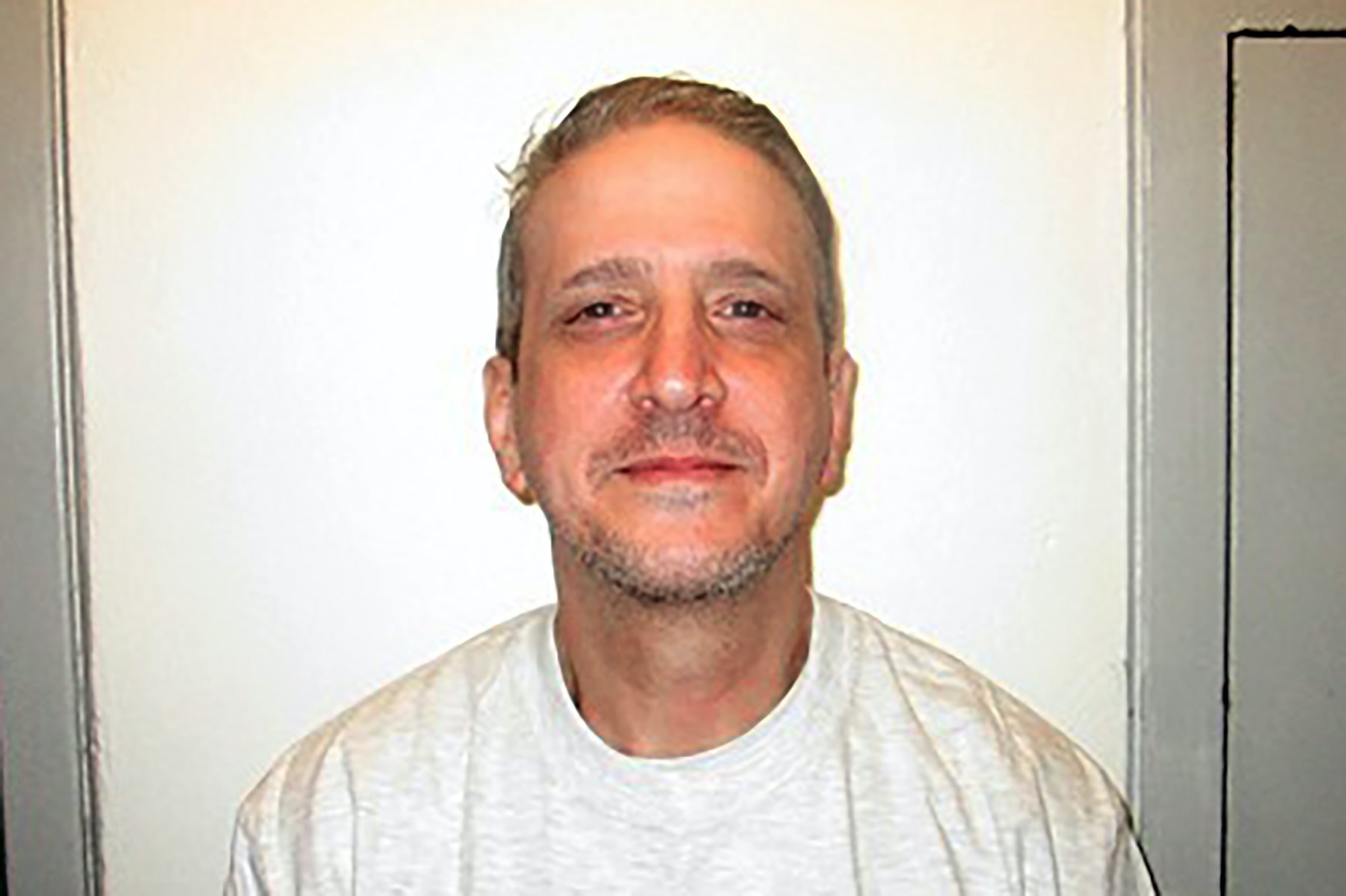After a federal judge denied death-row prisoners’ challenge to Oklahoma’s controversial and consistently botched lethal injection protocol, former Attorney General John O’Connor set 25 execution dates beginning in August 2022. So far, there have been three executions.
O’Connor broke a six-year freeze on executions in the state of Oklahoma after two botched executions in 2014 and 2015. The Report of the Oklahoma Death Penalty Review Commission’s recommendations has yet to be implemented. Unless there is a moratorium, 22 more people will be executed in Oklahoma in a very short period of time. 10 people have already been exonerated from Oklahoma's Death Row, and there is a consensus of innocence across parties on several individuals with execution dates.

“I do not think that God approves the death penalty for any crime, rape and murder included…. Capital punishment is against the better judgment of modern criminology, and, above all, against the highest expression of love in the nature of God.” - Dr. Martin Luther King Jr.
Why Moratorium?
One
A moratorium would give time to examine thoroughly and review the report of the Oklahoma Death Penalty Review Commission and implement recommendations
Two
A moratorium would give time to esure all claims of innocence and appeals are heard and reviewed
Three
A moratorium would give time to work to ensure that no inhumane drugs are administered to individuals

1 in 9
For every nine people executed, one person on death row has been exonerated.
Richard Glossip
"An independent investigation requested by Republican lawmakers was completed by more than 30 highly respected attorneys from nationally renowned law firm Reed Smith. These lawyers, who spent over 3,000 pro bono hours investigating this case, discovered a police investigation riddled with errors and neglect, detectives with fatal ‘tunnel vision,’ a reckless prosecution, unconscionable destruction of evidence, a miserable failure by Glossip’s court-appointed attorneys, and new evidence showing that Rich Glossip had nothing to do with the murder." His date is set for 9-22-2022.
Phillip Hancock
"Phillip Hancock is not a murderer and his execution would be a gross injustice. Mr. Hancock has never denied shooting Bob Jett and James Lynch in April 2001. He arrived at Bob Jett’s house unarmed after being summoned to pick up his troubled ex-girlfriend. Jett, high on methamphetamine and armed with both a loaded gun and a metal ratchet, began screaming at Mr. Hancock and ordered him into a large metal cage that stood in the room. Mr. Hancock’s description of the attack on him, culminating in his wresting Jett’s gun away and shooting both Jett and 300-pound Lynch who had an arm around Mr. Hancock’s neck, was substantially the same as that of the state’s eyewitness. Yet in closing arguments, the prosecutors twisted the evidence beyond recognition to convince the jury that Mr. Hancock was the aggressor." May 4th 2023
Tremane Wood
" Tremane Wood sits on death row while the person who killed the victim received a life sentence. The new evidence revealing the extent of his trial lawyer’s addiction and its effect on his representation of Mr. Wood undermines any confidence in the jury’s verdict,” said Keith Hilzendeger, an attorney for Mr. Wood. “It would be unconscionable to allow Mr. Wood’s execution in light of this new evidence of the grievous constitutional error.” Date is set for Feb. 8th, 2024.
"In light of the extensive information gathered from this year-long, in-depth study, the Commission members unanimously recommend that the current moratorium on the death penalty be extended."-The Report of the Oklahoma Death Penalty Review Commission
The Report of the Oklahoma Death Penalty Review Commission
The Oklahoma Death Penalty Review Commission (Commission) came together shortly after the state of Oklahoma imposed a moratorium on the execution of condemned inmates. In late 2015, Oklahoma executions were put on hold while a grand jury investigated disturbing problems involving recent executions, including departures from the execution protocols of the Department of Corrections. The report of the grand jury, released in May of 2016, was highly critical and exposed a number of deeply troubling failures in the final stages of Oklahoma’s death penalty. The Commission has spent over a year studying all aspects of the Oklahoma death penalty system, from arrest to execution, and even examined the costs of the system to taxpayers. The Commission was grateful to hear from those with direct knowledge of how the system operates—including law enforcement, prosecutors, defense attorneys, judges, families of murdered victims, and the families of those wrongfully convicted. In light of the extensive information gathered from this year-long, in-depth study, the Commission members unanimously recommend that the current moratorium on the death penalty be extended. The Commission did not come to this decision lightly. While some Commission members had disagreements with some of the recommendations contained in this report, there was consensus on each of the recommendations. Due to the volume and seriousness of the flaws in Oklahoma’s capital punishment system, Commission members recommend that the moratorium on executions be extended until significant reforms are accomplished. Many of the findings of the Commission’s year-long investigation were disturbing and led Commission members to question whether the death penalty can be administered in a way that ensures no innocent person is put to death. Commission members agreed that, at a minimum, those who are sentenced to death should receive this sentence only after a fair and impartial process that ensures they deserve the ultimate penalty of death. To be sure, the United States Supreme Court has emphasized that the death penalty should be applied only to “the worst of the worst.” Unfortunately, a review of the evidence demonstrates that the death penalty, even in Oklahoma, has not always been imposed and carried out fairly, consistently, and humanely, as required by the federal and state constitutions. These shortcomings have severe consequences for the accused and their families, for victims and their families, and for all citizens of Oklahoma. Many Oklahomans support the availability of the death penalty, as evidenced by the vote in favor of State Question 776 in the November 2016 election. Nevertheless, it is undeniable that innocent people have been sentenced to death in Oklahoma. And the burden of wrongful convictions alone requires the systemic corrections recommended in this report. viii The Report of the Oklahoma Death Penalty Review Commission This report is designed to highlight issues giving rise to urgent questions about the manner in which the death penalty is imposed and carried out in Oklahoma. The Commission hopes this report will help foster an informed discussion among all Oklahomans about whether the death penalty in our state can be implemented in a way that eliminates the unacceptable risk of executing the innocent, as well as the unacceptable risks of inconsistent, discriminatory, and inhumane application of the death penalty. The Commission encourages the Oklahoma Legislature, executive branch, and judiciary to take actions to address the systemic flaws in Oklahoma’s death penalty system. In submitting these recommendations, we adhere faithfully to important Oklahoma values and aspirations of innocence protection, procedural fairness, and justice for all.





